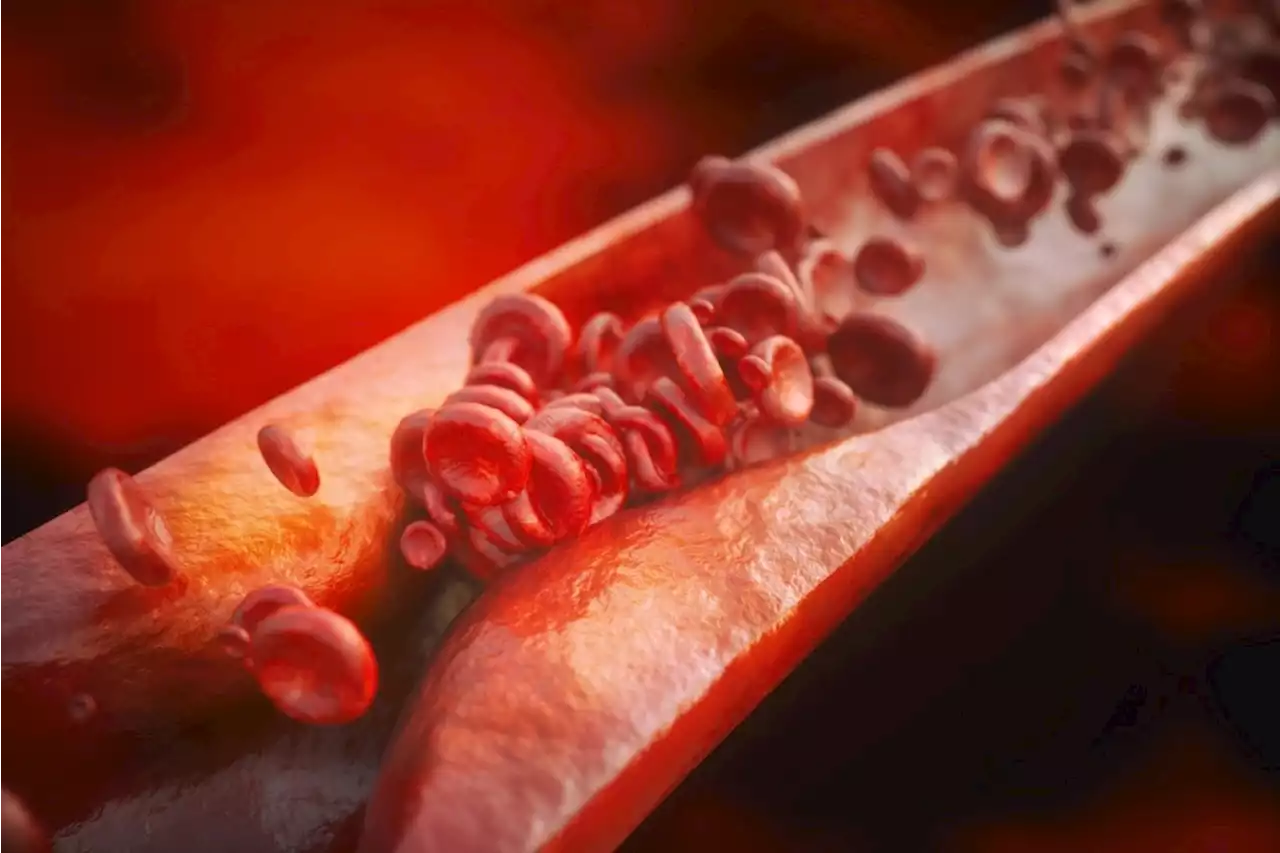In an On Medicine blog for Rare Disease Day 2023, Craig Bodman and Paula Foscarini-Craggs discuss the Enceph-IG study looking at early treatment with intravenous immunoglobulin for autoimmune encephalitis.
Rare disease conceptH_Ko / stock.adobe.comAutoimmune encephalitis is a rare condition affecting 1 in 100,000 people per year in the UK according to the Encephalitis Society. Autoimmune encephalitis is a swelling in the brain caused by the immune system attacking the body in error. It can cause people to become confused, and drowsy, exhibit changes in behaviour, and have seizures. Some patients recover completely, but in others, it can cause death or severe disability.
improve, clinicians often give intravenous immunoglobulin . IVIG is expensive and can sometimes cause serious side effects. Some doctors also think that if IVIG is used from the start of treatment, patients may recover more quickly and have fewer side effects from the illness. Enceph-IG is an individually randomized controlled trial of 356 adults. All patients will receive steroids and then half will receive IVIG and the other half will receive a placebo. The study will be carried out at about 50 hospitals in the UK. Over the last year, we have opened the study in six sites and recruited nine participants, but things haven’t been easy.
France Dernières Nouvelles, France Actualités
Similar News:Vous pouvez également lire des articles d'actualité similaires à celui-ci que nous avons collectés auprès d'autres sources d'information.
 Monocyte, neutrophil, and whole blood transcriptome dynamics following ischemic stroke - BMC MedicineBackground After ischemic stroke (IS), peripheral leukocytes infiltrate the damaged region and modulate the response to injury. Peripheral blood cells display distinctive gene expression signatures post-IS and these transcriptional programs reflect changes in immune responses to IS. Dissecting the temporal dynamics of gene expression after IS improves our understanding of immune and clotting responses at the molecular and cellular level that are involved in acute brain injury and may assist with time-targeted, cell-specific therapy. Methods The transcriptomic profiles from peripheral monocytes, neutrophils, and whole blood from 38 ischemic stroke patients and 18 controls were analyzed with RNA-seq as a function of time and etiology after stroke. Differential expression analyses were performed at 0–24 h, 24–48 h, and |48 h following stroke. Results Unique patterns of temporal gene expression and pathways were distinguished for monocytes, neutrophils, and whole blood with enrichment of interleukin signaling pathways for different time points and stroke etiologies. Compared to control subjects, gene expression was generally upregulated in neutrophils and generally downregulated in monocytes over all times for cardioembolic, large vessel, and small vessel strokes. Self-organizing maps identified gene clusters with similar trajectories of gene expression over time for different stroke causes and sample types. Weighted Gene Co-expression Network Analyses identified modules of co-expressed genes that significantly varied with time after stroke and included hub genes of immunoglobulin genes in whole blood. Conclusions Altogether, the identified genes and pathways are critical for understanding how the immune and clotting systems change over time after stroke. This study identifies potential time- and cell-specific biomarkers and treatment targets.
Monocyte, neutrophil, and whole blood transcriptome dynamics following ischemic stroke - BMC MedicineBackground After ischemic stroke (IS), peripheral leukocytes infiltrate the damaged region and modulate the response to injury. Peripheral blood cells display distinctive gene expression signatures post-IS and these transcriptional programs reflect changes in immune responses to IS. Dissecting the temporal dynamics of gene expression after IS improves our understanding of immune and clotting responses at the molecular and cellular level that are involved in acute brain injury and may assist with time-targeted, cell-specific therapy. Methods The transcriptomic profiles from peripheral monocytes, neutrophils, and whole blood from 38 ischemic stroke patients and 18 controls were analyzed with RNA-seq as a function of time and etiology after stroke. Differential expression analyses were performed at 0–24 h, 24–48 h, and |48 h following stroke. Results Unique patterns of temporal gene expression and pathways were distinguished for monocytes, neutrophils, and whole blood with enrichment of interleukin signaling pathways for different time points and stroke etiologies. Compared to control subjects, gene expression was generally upregulated in neutrophils and generally downregulated in monocytes over all times for cardioembolic, large vessel, and small vessel strokes. Self-organizing maps identified gene clusters with similar trajectories of gene expression over time for different stroke causes and sample types. Weighted Gene Co-expression Network Analyses identified modules of co-expressed genes that significantly varied with time after stroke and included hub genes of immunoglobulin genes in whole blood. Conclusions Altogether, the identified genes and pathways are critical for understanding how the immune and clotting systems change over time after stroke. This study identifies potential time- and cell-specific biomarkers and treatment targets.
Lire la suite »
 A bioethicist and a professor of medicine on regulating AI in health careSociety needs to “consider the best ways for doctors and AI to work together, and how medical roles will change as a consequence”, argue EffyVayena and ProfADMorris in a guest essay
A bioethicist and a professor of medicine on regulating AI in health careSociety needs to “consider the best ways for doctors and AI to work together, and how medical roles will change as a consequence”, argue EffyVayena and ProfADMorris in a guest essay
Lire la suite »
 Grimsby care home ‘requires improvement’ over medicine practicesThe care home will address the issues urgently
Grimsby care home ‘requires improvement’ over medicine practicesThe care home will address the issues urgently
Lire la suite »
 Study of rare cancer identifies patients at highest risk of metastasis and those who would respond to immunotherapyPheochromocytoma is a rare tumor, with an incidence of three to eight cases per million population per year. The work published today, Feb 28, on Rare Disease Day 2023, in Nature Communications, is the largest study on this cancers' molecular causes and focuses on patients with metastatic pheochromocytomas, which account for 20% of all cases. Survival of patients with metastatic pheochromocytoma is 20–60% at five years.
Study of rare cancer identifies patients at highest risk of metastasis and those who would respond to immunotherapyPheochromocytoma is a rare tumor, with an incidence of three to eight cases per million population per year. The work published today, Feb 28, on Rare Disease Day 2023, in Nature Communications, is the largest study on this cancers' molecular causes and focuses on patients with metastatic pheochromocytomas, which account for 20% of all cases. Survival of patients with metastatic pheochromocytoma is 20–60% at five years.
Lire la suite »
 Study supports the concept of atherosclerosis as a T-cell autoimmune disease targeting the arterial wallStudy supports the concept of atherosclerosis as a T-cell autoimmune disease targeting the arterial wall NatureCVR LMU_Muenchen atherosclerosis Tcell autoimmune artery immune immunity disease
Study supports the concept of atherosclerosis as a T-cell autoimmune disease targeting the arterial wallStudy supports the concept of atherosclerosis as a T-cell autoimmune disease targeting the arterial wall NatureCVR LMU_Muenchen atherosclerosis Tcell autoimmune artery immune immunity disease
Lire la suite »
 Using sweat to diagnosis disease: soft microfluidic analysis systems assess health statusUsing sweat to diagnosis disease: soft microfluidic analysis systems assess health status NorthwesternU ScienceMagazine sweat diagnosis disease health
Using sweat to diagnosis disease: soft microfluidic analysis systems assess health statusUsing sweat to diagnosis disease: soft microfluidic analysis systems assess health status NorthwesternU ScienceMagazine sweat diagnosis disease health
Lire la suite »
